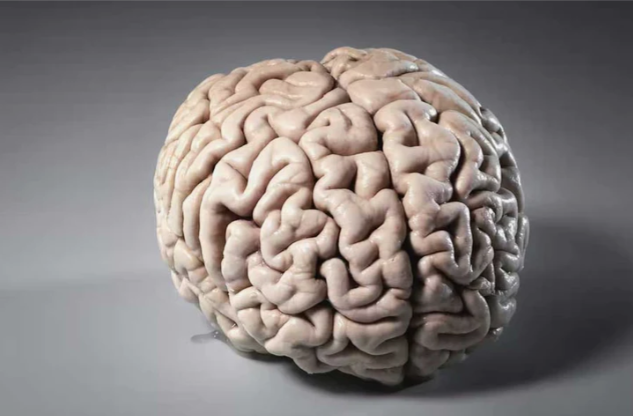
Maintaining brain health is essential for optimal cognitive function, including quality of life, and a healthy aging process.
Cognitive impairment, which can affect individuals at any age, results in difficulties with processes such as language, memory, and judgment, which affect daily life.
Causes of cognitive decline such as brain injury may be beyond your control. However, other factors that cause cognitive problems can be addressed through diet and lifestyle approaches, such as vitamin supplements for brain health.
Understanding cognitive function and decline
The brain and nervous system are responsible for many cognitive functions, including attention, memory, information processing, and higher-order cognitive skills called executive functions.
Cognitive impairment, usually measured by standardized tests, refers to changes in cognitive performance. Changes in cognitive function often precede clinical dementia, a neurodegenerative condition characterized by global cognitive decline and a variety of symptoms, such as memory loss and impaired communication, recognition, and judgment.
What vitamins are good for the brain?
The central nervous system (CNS), consisting of the brain and spinal cord, relies on essential nutrients to support normal cognitive function and brain health.
Read: When is the Best Time to Take Vitamins?
Consuming these nutrients in your diet or as a dietary supplement can help maintain cognitive function and prevent conditions such as dementia. The following is an overview of what vitamins are good for brain health below.
Beta-carotene, vitamin A and brain function
Beta-carotene is a precursor of vitamin A in the body, found in a variety of colorful fruits and vegetables.
One study of octogenarians and centenarians found that serum (blood) levels of certain nutrients, including -carotene, were positively associated with cognition in this population.
Furthermore, a randomized controlled trial that assessed the effects of long-term -carotene supplementation in men over 65 years found that long-term supplementation (mean 18 years) was associated with significantly higher global scores than in the placebo group.
In the study, global scores included measures of general cognition, verbal memory, and category fluency (ability to list words when given a category).
Vitamin B and brain function
The 8 B complex vitamins are a type of water-soluble vitamin group that are involved in various functions throughout the body.
As a group, they contribute to brain health by supporting reactions involved in energy production, DNA and RNA synthesis and repair, methylation, and the production of various signaling molecules and chemicals used by the nervous system.
A systematic review of individuals over 40 years of age without dementia found that taking B vitamins, including B6 (pyridoxine), B9 (folate), and B12 (cobalamin), for at least three months improved episodic memory and global cognition.
Research shows that for individuals who are deficient in one or more of the B vitamins, supplementing with a B complex supplement may be more beneficial for brain health than taking isolated vitamin supplements.
Vitamin C and brain function

Vitamin C is a water-soluble essential vitamin that must be obtained from food sources because it cannot be produced by the body. Research shows multiple roles of vitamin C in the brain, which include supporting neurodevelopment, neurotransmitter function, angiogenesis (blood vessel formation), and antioxidant function.
In addition, vitamin C supports the regeneration (renewal) of other antioxidants, such as glutathione and vitamin E.
One review study that examined the relationship between vitamin C levels and cognitive performance in healthy and cognitively impaired individuals found that cognitively intact (healthy) individuals had higher blood concentrations of vitamin C.
Vitamin E and brain function
Also among the best cognitive vitamins, vitamin E is a group of eight naturally occurring compounds, including tocopherols and tocotrienols. As a fat-soluble antioxidant, vitamin E protects against the production of reactive oxygen species and may help prevent chronic conditions associated with these damaging free radicals.
One study examined levels of vitamin E compounds in adults with mild cognitive impairment (MCI) and Alzheimer's disease (AD), a form of dementia. The investigators found that low levels of tocopherols and tocotrienols were associated with an increased risk of MCI and AD.
Vitamin K and brain function
Another fat-soluble vitamin, vitamin K is found in food as phylloquinone (K1) and some menaquinones (the K2 form). In the nervous system, vitamin K helps activate certain proteins involved in the survival of nerve cells and supports synthesises is sphingolipids, components of the myelin sheath that insulate nerves.
Vitamin K deficiency has been associated with lower behavioral and cognitive performance. Higher levels of phylloquinone have been associated with greater verbal episodic memory, an aspect of memory performance.
Additionally, experimental studies suggest that menaquinone-4 (MK-4) may protect against inflammation and oxidative stress, processes involved in neurodegeneration.
Other considerations for brain health
This brain vitamin is not the only factor to keep in mind when it comes to brain health. There are a variety of other dietary and lifestyle factors that can contribute to brain health and prevent conditions such as neurodegenerative diseases.
Start by recognizing and addressing risk factors for cognitive declines, such as nutritional deficiencies, a high-sugar diet, a high-fat diet, and a lack of physical activity.
Getting enough sleep is also important, as acute (one night) sleep deprivation has been associated with increased formation of -amyloid plaques in the brain, a hallmark of Alzheimer's disease.
Staying cognitively active through a stimulating career, continuing education, and recreational activities can also help support brain function.
That's the article 5 Vitamins for Brain Health and Memory. May be useful.










